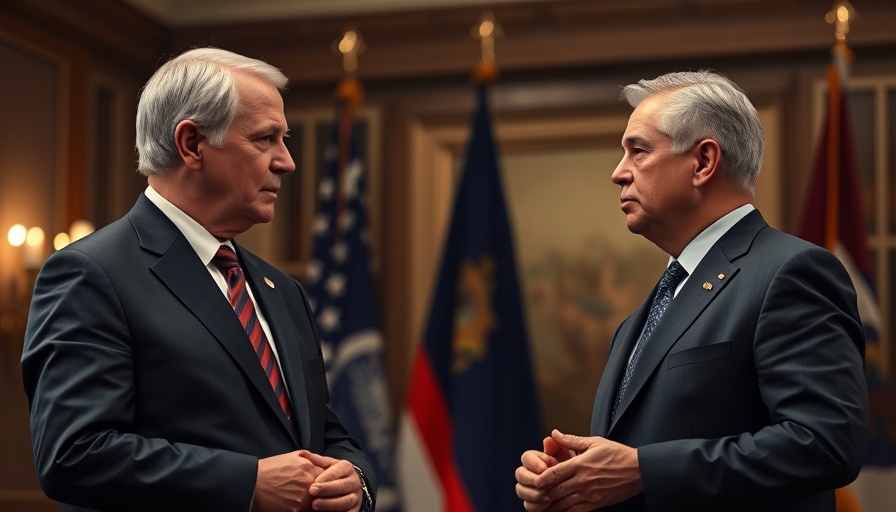
Trump's Tariff Threat: A Looming Financial Impact
In a surprising move, U.S. President Donald Trump has announced a staggering 50% tariff on Indian imports, with a specific focus on India’s purchases of Russian oil. This decision, effective from August 27, represents one of the highest tariffs imposed by the United States to date. The announcement follows a series of escalating tensions regarding global energy policies and the ongoing conflict in Ukraine, where the U.S. seeks to counter Russian economic influence.
The Political Landscape: Reactions from India
India responded unfavorably to the tariff threat, labeling it "unfair, unjustified, and unreasonable." The Indian government's statement underscored their commitment to pursue their national interests, drawing attention to their prior purchases from Russia, which were made in response to shifts in the global energy market post-conflict onset. The foreign ministry’s stance may reflect a broader concern regarding how U.S. policies could disrupt essential trade relationships and India's energy stability.
Impact on Key Industries and Job Markets
The potential ramifications of this tariff are significant, threatening a 50% duty on crucial Indian exports such as textiles, gems, auto parts, and seafood – industries that significantly contribute to India’s job market. Trump's approach could not only strain relations between the U.S. and India but also impact the global supply chain, particularly affecting millions in developing nations who depend on these sectors.
The Global Context: Who Else Might Be Affected?
The U.S. plans to evaluate other nations purchasing Russian oil, hinting at potential future tariffs for countries like Turkey and China. This broader strategy suggests a concerted effort to politically and economically isolate Russia amidst its ongoing war in Ukraine. As global energy dynamics shift, this could set a precedent that changes how nations engage with each other concerning energy security and trade policies.
Conclusion: A Call for Collective Dialogue
As the geopolitical landscape continues to evolve, it’s crucial for nations to engage in meaningful dialogue to address mutual energy needs while managing international tensions. The ramifications of the proposed tariffs highlight the necessity for collaborative solutions that respect national interests yet promote economic stability.
 Add Row
Add Row  Add Element
Add Element 



Write A Comment